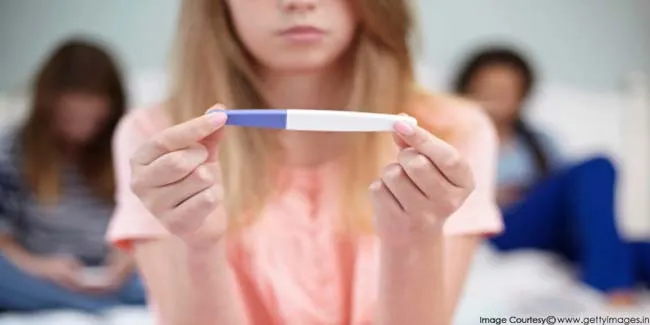
Women who become mothers at the young age of 21 and below can suffer severe long-term health problems, a latest study by the Buck Institute for Research on Aging has revealed. The study showed that early motherhood drastically increases the risk of chronic health conditions in later life, such as type 2 diabetes, heart failure, and obesity.
Table of Content:-
More significantly, the research finds that these women are as much as four times more likely to acquire severe metabolic disorders, which are conditions that interfere with how the body metabolises energy and nutrients, and in many cases, have grave long-term consequences.
But premature motherhood isn't the sole driver of health risk. Girls who enter puberty earlier than 11 years of age also experience a similar risk pattern, with a higher likelihood of contracting age-related diseases.
The researchers had studied health information of almost 2,00,000 women using the UK Biobank, a massive biomedical data warehouse and research resource. They found 126 genetic markers associated with early events of reproduction and its influence on ageing and disease.

Also Read: Too Much Protein, Not Enough Water? The Kidney Toll of Gym Culture
One of the main findings of the study is the association between early breeding and raised Body Mass Index (BMI). Elevated BMI is a known risk factor for a variety of illnesses, such as cardiovascular disease and type 2 diabetes. The research indicates that early birth and childbirth could be responsible for raised BMI, which further increases the risk of contracting these diseases.
"Timing matters more than we’ve previously understood. The earlier the body begins and completes reproductive milestones, the more it seems to accelerate aging and susceptibility to chronic diseases," said the study’s lead researcher.
By way of contrast, the study indicates that women who go through puberty and give birth later in their lives can be helped by a form of biological protection. Later reproductive timing was related to reduced risk of age-related disease, including Alzheimer's, and was also genetically related to longer longevity.
Takeaway
Childbirth and early puberty could accelerate biological ageing and complicate chronic illness. Public health initiatives that promote reproductive education and early-life wellness could pay dividends in women's long-term health.
Read Next
Julia Fox Admits She Altered Her Face for Men, and Now Wishes She Hadn’t: “I Wish I Could Go Back”
How we keep this article up to date:
We work with experts and keep a close eye on the latest in health and wellness. Whenever there is a new research or helpful information, we update our articles with accurate and useful advice.
Current Version